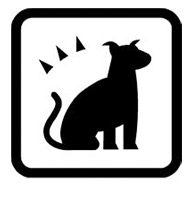Opportunities lost. But how we would know until it’s too late? We couldn’t get a lift to Syracuse that May; in those days, students at state university campuses weren’t given cars as gifts for simply graduating high school. Instead, we received a portable Olivetti Lettera 22, a typewriter, which got great mileage (it still works,) but was lousy for getting from SUNY-Nowhere to the Onondoga War Memorial.
So, we didn't see Janis Joplin that night and we never would. Sure, there would be other concerts and other nights; bands that no longer exist and those that do; magical moments fueled by substances or lovers or friends; but they would never be Janis.
Last week was the anniversary of her death in 1970. She was only 27 years old and her death came a bare 16 days after the death of another 27 year old musician, Jimi Hendrix. Joplin’s vocal intensity matched Hendrix’s musicianship with a depth borne of petal to the metal rock and roll; a passion that burns brightly and can be short-lived (except for the Stones, who have clearly sold their souls to you know who.)
We found ourselves sitting in the Onondoga War Memorial a few years back, waiting for a school boards’ convention to start. Try as we could, we were unable to reincarnate Janis’ presence.

It was gone and had only been there on that night in 1969, when we were elsewhere. To this day, the sound of that voice and the sight of the small body from where it came fills us with never been and always is.
Until Hastings v. Sauve, 21 N.Y.3d 122 (2013), the world was secure in a protected world of “vicious propensity.” Unless a dog, cat or other domestic animal had eaten half the neighborhood, its owner was free from liability. Hence, the misnamed but practical “one bite” rule was born.
Alas, all good things come to an end (or maybe they don’t.) In dealing with a wandering cow, the Court of Appeals in Hastings found that liability could attach when the peripatetic cow caused an accident. After all, it was not Elsie’s conduct that was at fault, but that of her owner who had negligently failed to see to a fence, which allowed her to wander off.
However, the Court was very careful in limiting its decision in Hastings. After all, a cow is not a domestic animal like a cat or a dog.
Relying on Hastings, the 1st Department decided Doerr v. Goldsmith, 105 A.D.3d 534 (1st Dep’t 2013) in April. In a bizarre, only in New York accident, boyfriend and girlfriend were walking in Central Park, on opposite sides of the roadway. One had their dog in his arms. As plaintiff rode his bicycle between them, the girlfriend called for the dog to jump out of her boyfriend’s arms and run to her, which he did. That’s when plaintiff collided with the dog and was propelled off his bike. As it was before Hastings, the AppDiv dismissed the action.
Now, however, on the strength of Hastings, the AppDiv now grants reargument and decides otherwise. (2013 NY Slip Op 06442, 10/2/13) It doesn’t make a difference that a dog was involved here, rather than a cow. It’s the negligence of humans that’s at issue. The dog was in the control of its masters at all times. What makes this interesting is that with two justices dissenting, Doerr now goes up to the House on Eagle Street as of right. Even the dissent agrees that Hastings was not wrongly decided, but it was specifically limited it to farm animals. It’s the CofA’s job to extend it to dogs and cats, not the AppDiv’s.